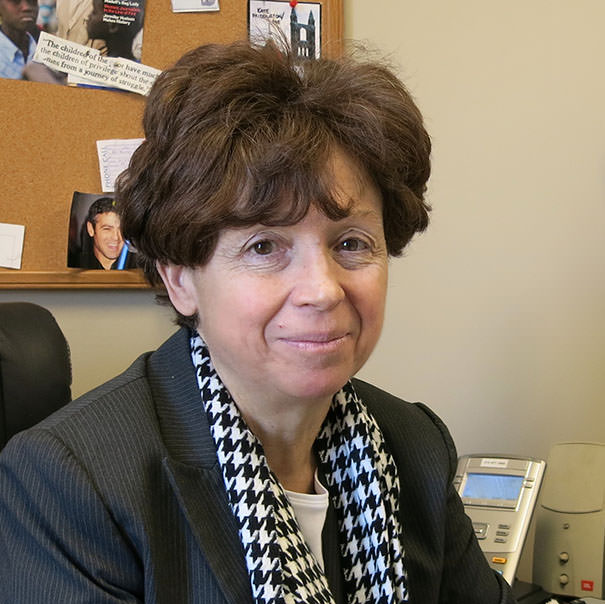
Person of the Week
Marie Kenyon
Public Interest Lawyer (Founder, Manager Catholic Legal Assistance Ministry)
This mission is an opportunity to speak out on behalf of those who don’t normally have a voice. This gives us a chance to represent those who would go unrepresented. We give them a chance to make sure their voices are heard in the courtroom.
1. What led you to the mission of being a public interest lawyer?
Being a lawyer is something that I knew I always wanted to do. Even when I was a kid I thought about being a lawyer and started by doing debate in school.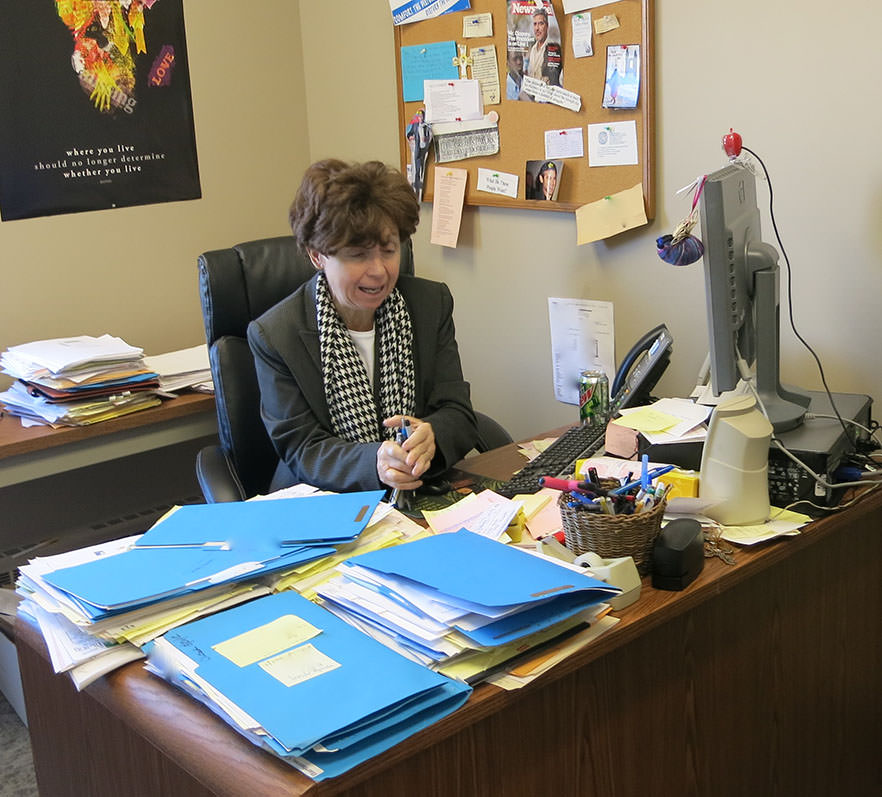
I did my undergraduate work at Bradley University in Peoria, Illinois. After college I went into the Peace Corps for two years and served in West Africa. Then I came to law school at St. Louis University in St. Louis, Missouri. When I was in law school, I worked in the public defender’s office and legal services. The year after graduation, I was hired to start The Catholic Legal Assistance Ministry, a project of Catholic Charities. The Ministry was founded by the Archdiocese of St. Louis. Twenty-six years later, I’m still at it.
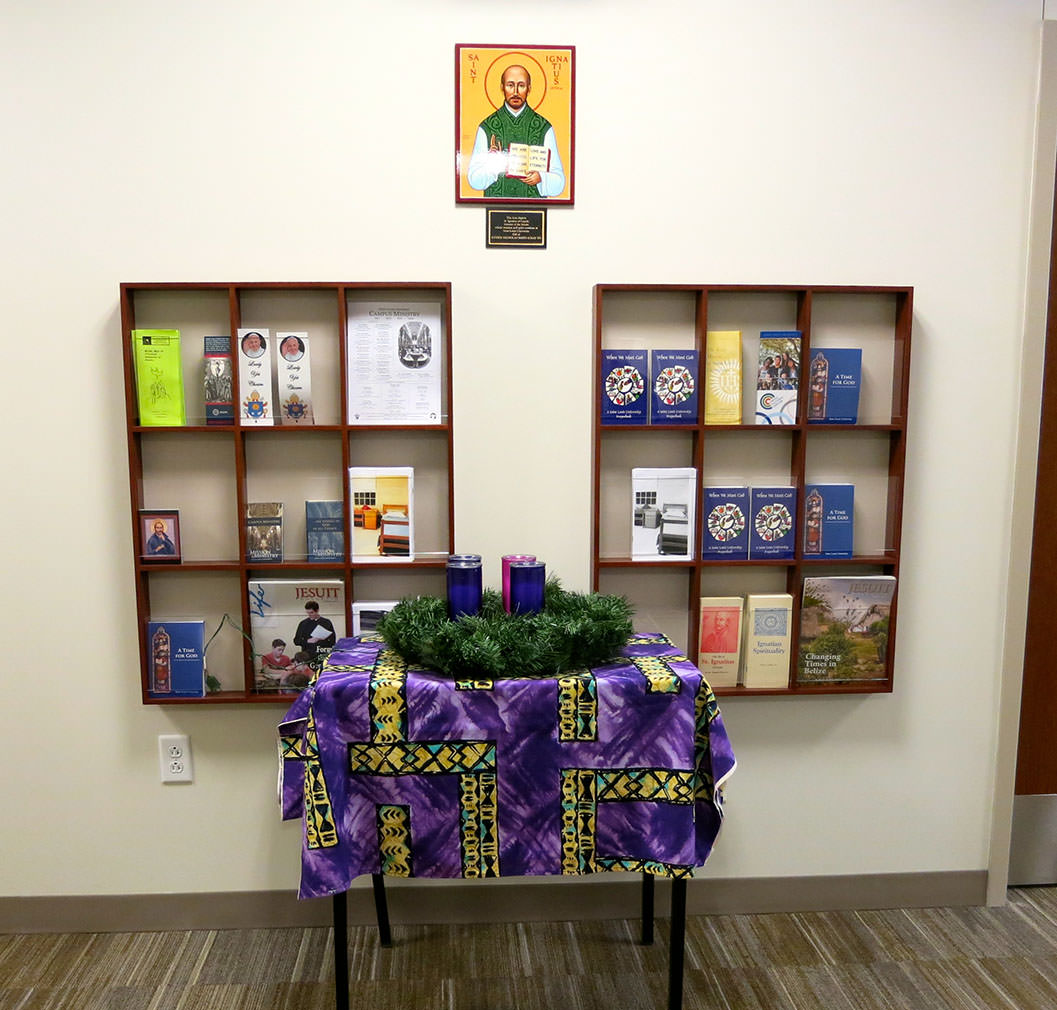
I’ve always been interested in working with the poor. It’s my passion. It is where I feel like, “this is what I was called to do”.
When we started this program, we started thinking about what we would call it. We deliberately called it a ministry. If you feel this is
something you are called to do, it is a ministry. Everybody has a skill set within this ministry. (Click here to go to the website of this ministry.)
2. What does this mission mean to you?
This mission is an opportunity to speak out on behalf of those who don’t normally have a voice. Under the 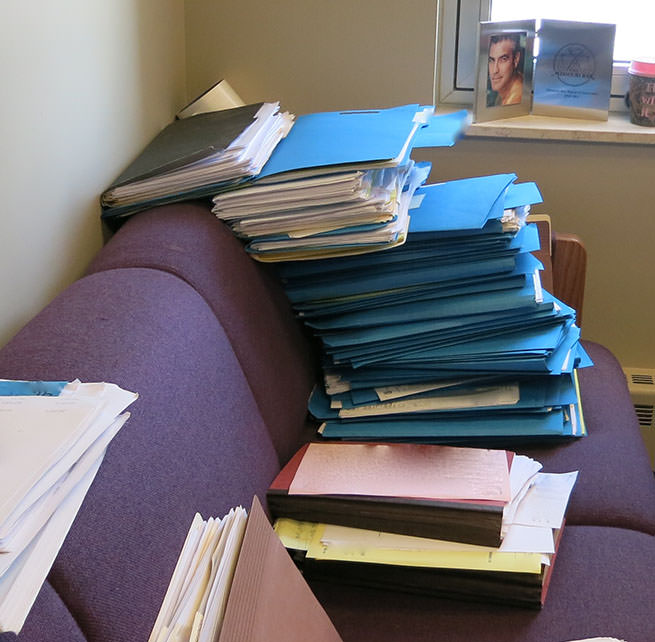 constitution, the only people entitled to free lawyers are people who have been accused of a crime. So if you need guardianship for a Down’s Syndrome daughter once she turns eighteen, or are a woman trying to get out of an abusive relationship, or a child and your parents have a hideous contested custody case, normally if you don’t have money, you don’t have a lawyer. This gives us a chance to represent those who would go unrepresented. We give them a chance to make sure their voices are heard in the courtroom.
constitution, the only people entitled to free lawyers are people who have been accused of a crime. So if you need guardianship for a Down’s Syndrome daughter once she turns eighteen, or are a woman trying to get out of an abusive relationship, or a child and your parents have a hideous contested custody case, normally if you don’t have money, you don’t have a lawyer. This gives us a chance to represent those who would go unrepresented. We give them a chance to make sure their voices are heard in the courtroom.
3. What was your best day as a public interest lawyer?
I’ve had too many. I don’t think I could say one particular thing or one particular case. I’ve been doing this for twenty-six years. If I didn’t have a lot of good days or if I didn’t like it, I would have a 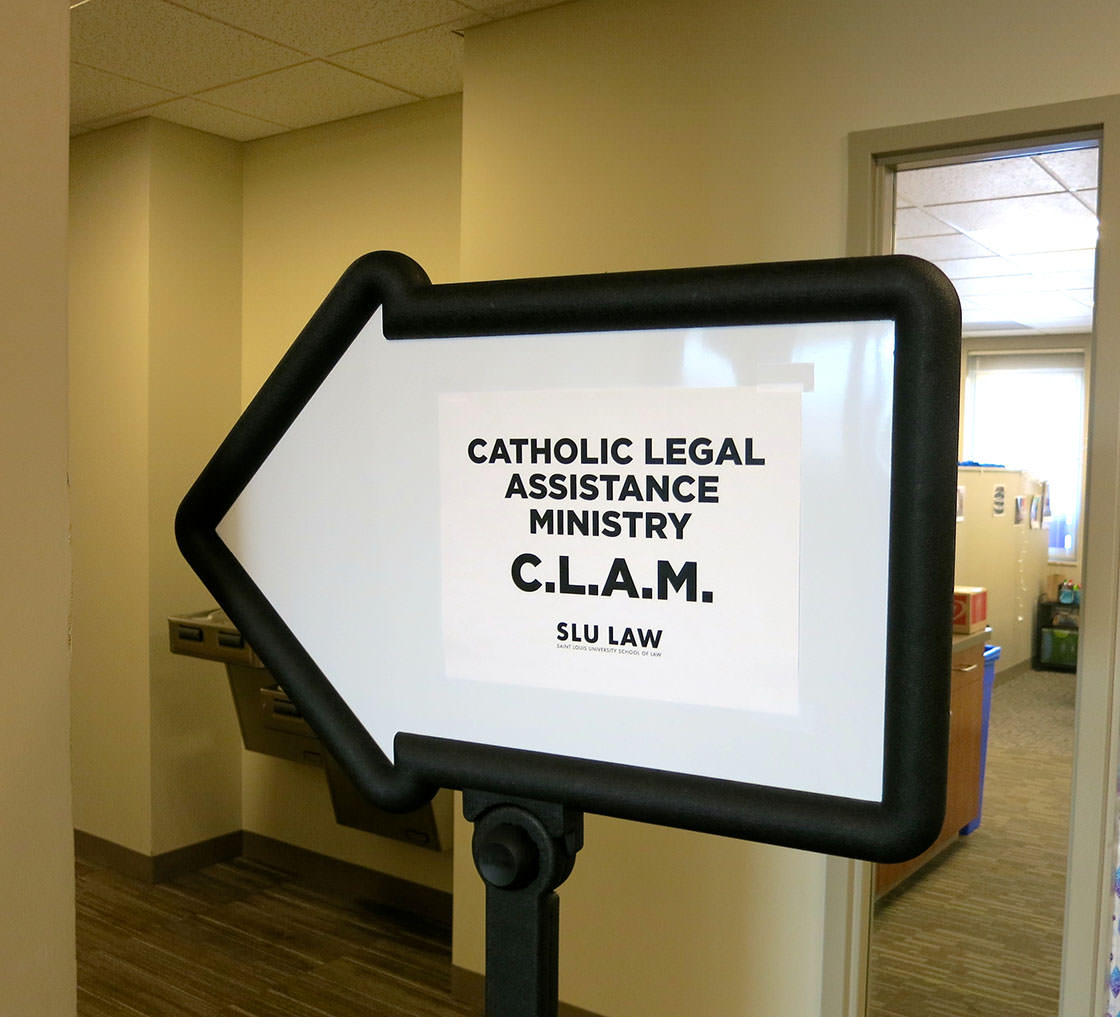 different job. This job does not pay well. It has a lot of hours. But it is incredibly rewarding.
different job. This job does not pay well. It has a lot of hours. But it is incredibly rewarding.
Anytime we make sure children are safe, this is a good day. So if we have a case where children are living where someone is abusive or someone is not taking care of them, we can make sure the children are getting their needs met. We are in a position to speak up for them. We can make sure that the judge knows what is going on so he or she can place them in a safe place. They can make sure that only safe people can be around that child or there will be only supervised visits or there will be no contact with the abusive person.
Giving someone else a voice is really rewarding to me.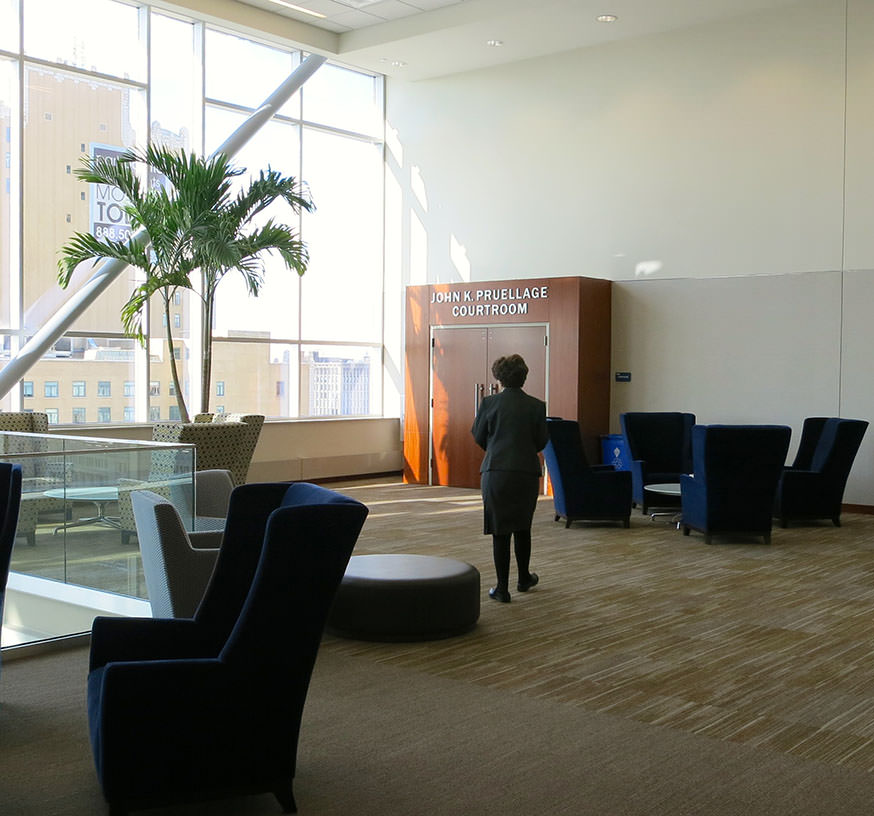 This is true especially when we have kids who have been sexually abused. Those are the cases where I think, “Wow. I had a good day at work.”
This is true especially when we have kids who have been sexually abused. Those are the cases where I think, “Wow. I had a good day at work.”
My office has three full time lawyers and four part time lawyers. We do civil law that is mainly domestic violence, immigration, and a veterans’ advocacy program. This year we were on track and did a little over fourteen hundred cases (1400). For every person that we help, there are at least two people that we say, “I’m sorry, we can’t help you.” If you look at the number of people who are living in poverty, there are a ton of folks out there that need help.
4. What was your worst day as a public interest lawyer?
A bad day is when I realize I can only do so much. I can ONLY do so much: I can help you with your legal problem, but you still have no money, you still have no education, you are still making bad choices about people you choose to have physical relationships with, you are still living with mental illness. This is the sad part: I only do one little slice of their life. Everything else remains the same.
5. How did you survive your worst day?
I feel it is a ministry and I pray. I say, “All right, let me get through this and we’ll move on.”
I have really good friends. Our office is very supportive of each other. At the end of the day I might go out with my friends and have a margarita!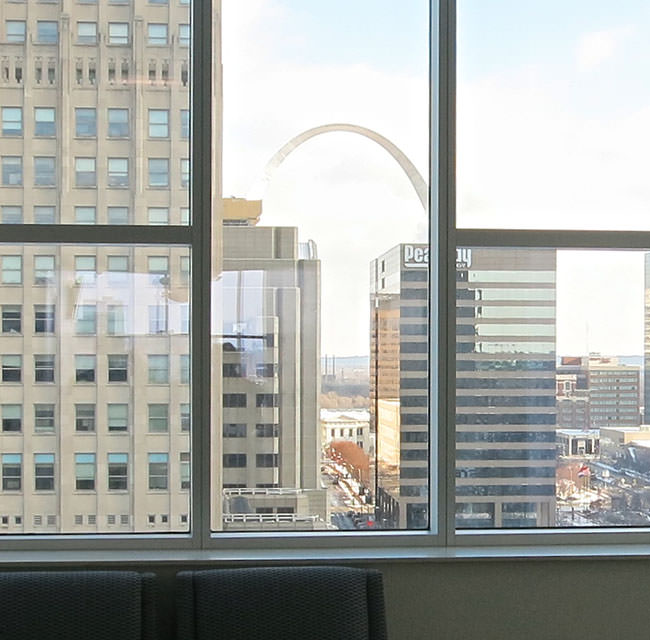
I don’t think you have to devote your entire career to being a public interest lawyer. The nice thing for me is I work with a lot of law students. Once they graduate, I don’t forget about them and they don’t forget about me. I’ll call my students and say, “Look I’ve got something. Do you think you can help me out with this? Do you think you can take this case?” So even if you want to do estate planning or mergers and acquisitions or you want to be a criminal defense lawyer, you still can take pro bono cases and help people who would not otherwise have their day in court. I tell people that if even if they don’t devote their entire career to helping the poor, they can help out. You can make a difference wherever you are.
(Click here to see an Archstlmedia interview with Marie online.)
- « Previous person: Gloria Gelber
- » Next person: Martha Moyle